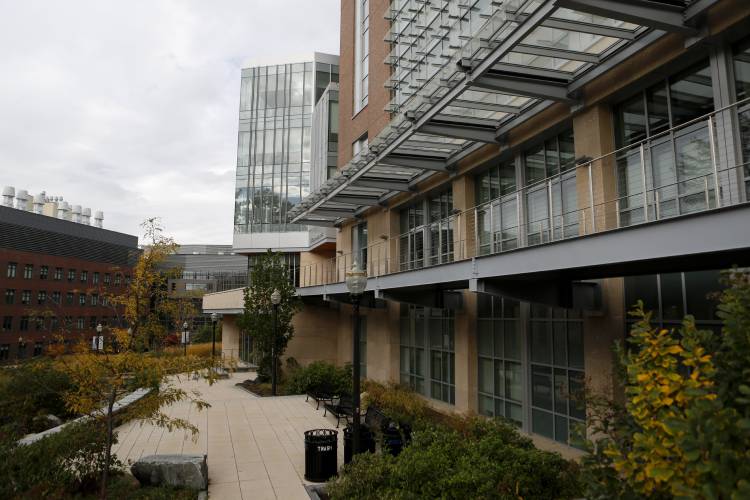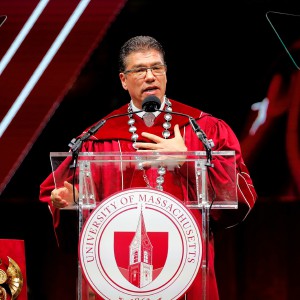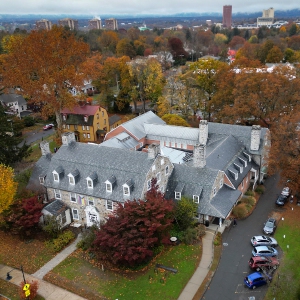From lab to the world: UMass researchers land $5.5M grant to help translate work into products

GAZETTE FILE PHOTO GAZETTE FILE PHOTO
| Published: 02-23-2024 9:43 PM |
AMHERST — Researchers at the University of Massachusetts will soon get help translating their work conducted in campus laboratories into solutions to real-world problems related to human health and well-being.
That’s the broad focus of a new $5.5 million grant received by a team from UMass’ Institute for Applied Life Sciences from the National Science Foundation through its Accelerating Research Translation award, or ART.
The grant, one of only 18 from a $100 million National Science Foundation-managed fund, is geared toward converting research ideas into viable products for tackling real-world challenges, according to Peter Reinhart, the founding director of the Institute for Applied Life Sciences (IALS). It is the only ART award in New England.
In addition to IALS, researchers from other UMass departments are part of the team, including the Technology Transfer Office, the Office of Research & Engagement and the Office of the Provost.
“Our research questions are very broad and they could be everything,” Reinhart said. “The central theme that all projects relate to is improving human health and well-being.”
Reinhart noted that the results of the individual projects may play out in various ways. They might lead, for example, to a therapy for a condition such as Alzheimer’s, Parkinson’s or Huntington’s diseases.
According to the Centers for Disease Control and Prevention, more than 6 million Americans are living with Alzheimer’s since 2021, and the number is projected to nearly triple to 14 million people by 2060.
Another application of research ideas could be diagnostic aids, Reinhart said.
Article continues after...
Yesterday's Most Read Articles
“For this type of disease, we don’t even know when people got injured, because there are no good diagnostic tests,” said Reinhart. “Sometimes we find people with Alzheimer’s that might have developed 10 years earlier.
“We started the concept of how to help potential patients learn more about the disease earlier, but need money to build infrastructure to make real goods,” said Reinhart.
The four-year grant is part of a broad effort to help change the traditional role of universities by making investments to support translational research, particularly in laboratories and startups, Reinhart said.
“NSF endeavors to empower academic institutions to build the pathways and structures needed to speed and scale their research into products and services that benefit the nation,” NSF Director Sethuraman Panchanathan said in a statement.
Furthermore, additional training will be provided to prepare postdoctoral fellows and graduate students for careers related to translational research.
“The students will benefit by being trained to be part of this innovation economy, and the products we produce are the real beneficiaries for larger society,” Reinhart said.
Karen Utgoff, director of Venture Development at the Institute for Applied Life Sciences, said the initiative would support the innovation economy in western Massachusetts, as well as encourage students seeking new businesses.
Interim Provost Mike Malone, who’s also the senior vice chancellor for academic affairs, noted that the products the laboratories create may result in obtaining a patent or intellectual property. Obtaining a patent is one way to put research ideas into practice.
“If you discover something useful, but do not commercialize it, then no one is going to benefit from it,” Malone said.
Xinyi Yang writes for the Gazette from the Boston University State House Program.

 Sharing a few notes: High schoolers coaching younger string players one on one
Sharing a few notes: High schoolers coaching younger string players one on one Reyes takes helm of UMass flagship amid pro-Palestinian protests
Reyes takes helm of UMass flagship amid pro-Palestinian protests Sole over-budget bid could doom Jones Library expansion project
Sole over-budget bid could doom Jones Library expansion project Amherst poised to hire police department veteran as new chief
Amherst poised to hire police department veteran as new chief 